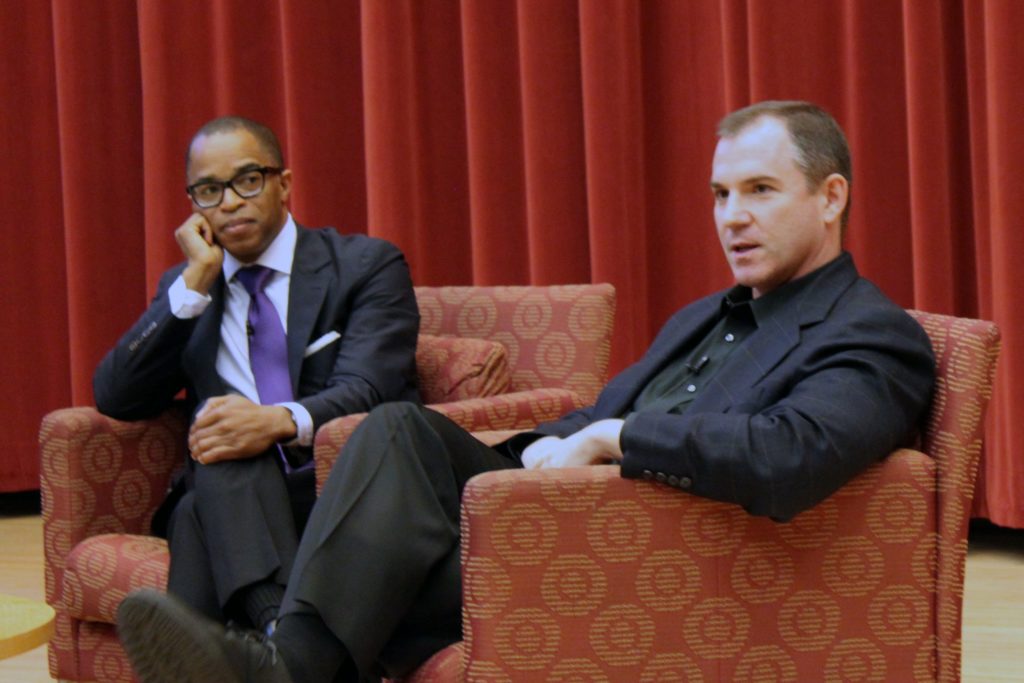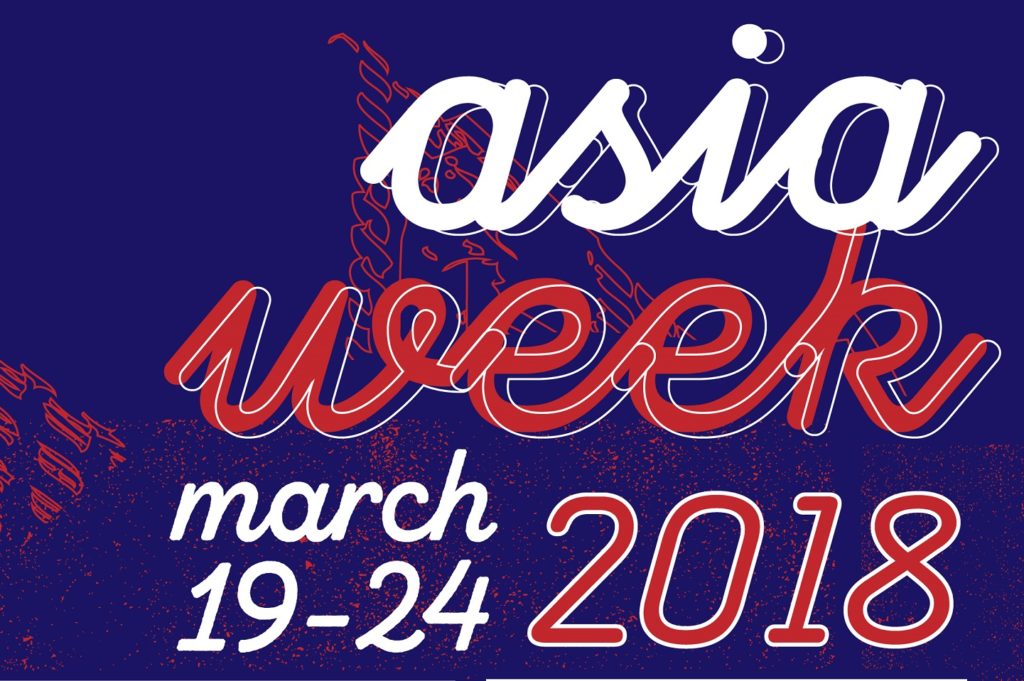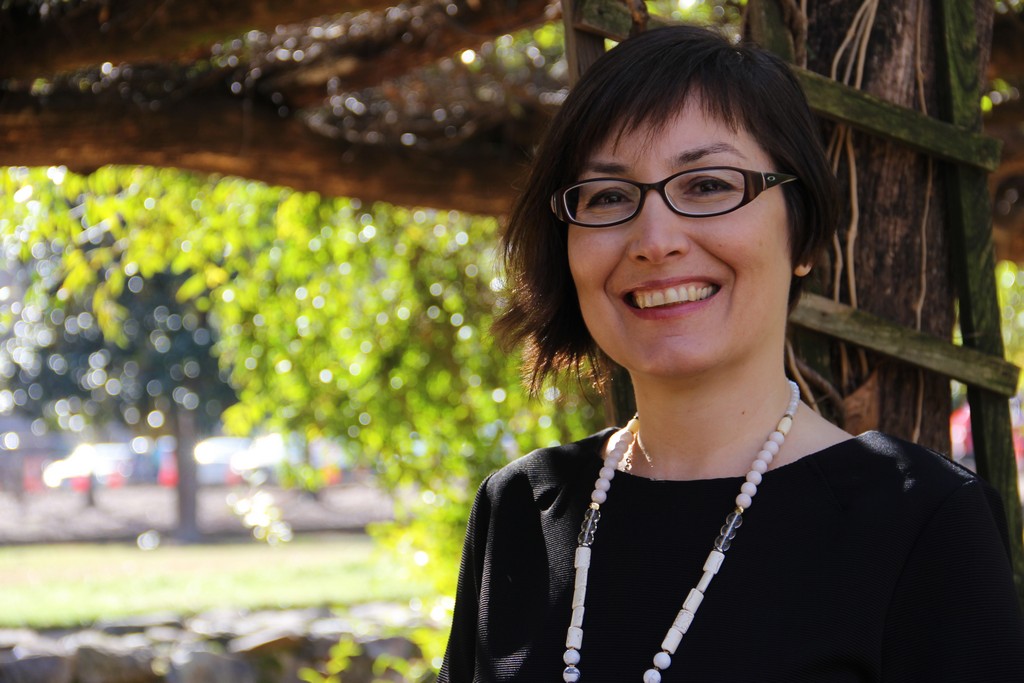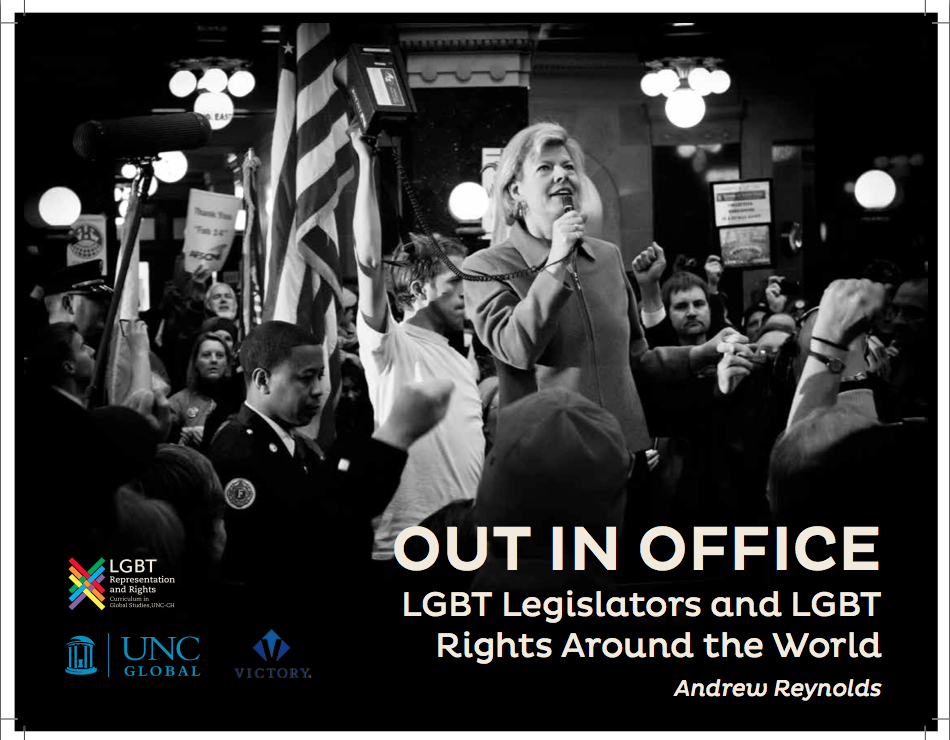 The presence of legislators who are openly lesbian, gay, bisexual and transgender has a direct, significant impact on pro-LGBT legislation around the world, according to new research from a political scientist at the University of North Carolina at Chapel Hill.
The presence of legislators who are openly lesbian, gay, bisexual and transgender has a direct, significant impact on pro-LGBT legislation around the world, according to new research from a political scientist at the University of North Carolina at Chapel Hill.
The research, led by Andrew Reynolds, associate professor of political science in UNC’s College of Arts and Sciences and chair of the curriculum in global studies, appears in the May 2013 issue of American Political Science Review.
The numbers of openly LGBT members of parliament do not have to be high in order to effect LGBT-friendly legislation, Reynolds said.
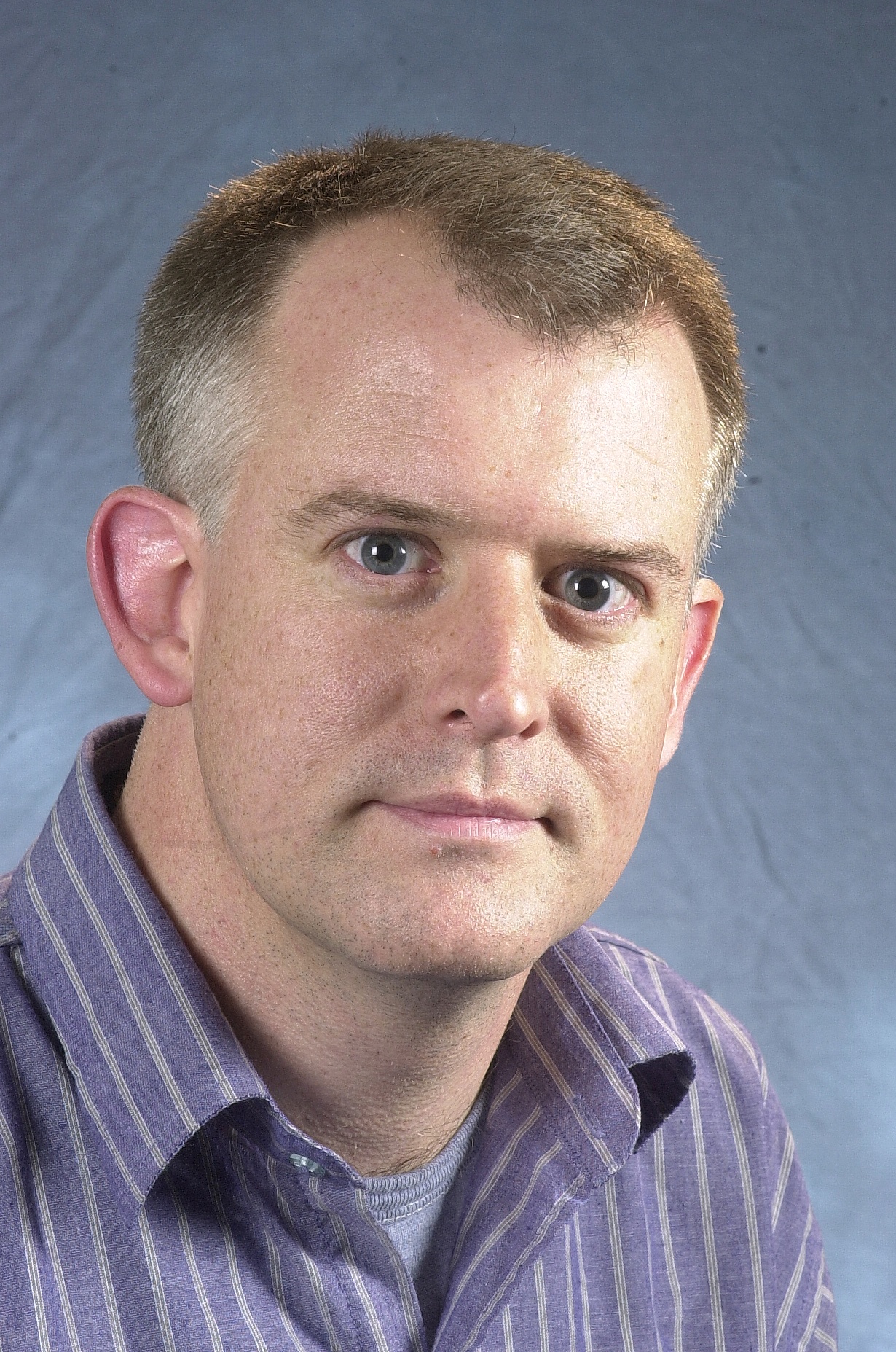
“Marginalized communities often seek political representation as a means of protection, advancement and integration,” he said. “Openly LGBT legislators act as mold-breakers and trailblazers, giving symbolic hope to younger generations and slowly lessening the shock of difference in the legislative chamber.”
Individual LGBT legislators also can nurture acceptance from their straight colleagues, who quite often become more supportive of LGBT rights when they know someone who is LGBT, he added.
Reynolds addressed three major questions in the study:
- How many openly LGBT legislators serve or have served in national legislatures?
- What factors determine their success from nation to nation?
- What is the relationship between the presence of these legislators and the enactment of laws that promote equal rights for LGBT people?
Since 1976, 181 openly LGBT legislators have been elected to serve in national office in 30 countries.
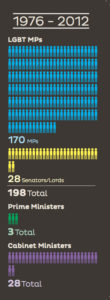
In the study, 96 countries (those with and without LGBT members of parliament) were scored on the progressiveness of their LGBT legislation on a scale from -2 (the most homophobic) to 6 (the closet to equality). The 27 countries which have experienced at least one LGBT legislator averaged a score of 3.6 in 2011, while the 69 nations with no LGBT legislators scored an average of 0.3. The highest equality law scores in 2011 were in Sweden and The Netherlands.
Other interesting findings from the report:
- A country that has elected an LGBT legislator is 14 times more likely to have marriage equality or civil union/registered partner laws.
- A candidate being open about their sexual orientation when running for office has increased over time. Up until 1999, only 48 percent were “out” when first elected; after 1999, 93 percent were “out” when elected.
- No country in the study declined in its overall LGBT rights between 2003 and 2011; 48 nations improved; 48 stayed the same.
“Politicians around the world sometimes use ‘gay issues’ as a wedge issue in election campaigns, and homophobia can be a potent weapon for candidates around the world,” Reynolds said. “As such issues dominate national campaigns, the need to represent the community at risk becomes more urgent.”
More and more openly LGBT candidates are winning office, Reynolds added. From 1977 to 2013, the United Kingdom has had the most LGBT members of parliament in the study — 44. In the United States, there have been 12 LGBT legislators in Congress from 1983 to 2013.
The second phase of the research will move beyond quantitative data to interviews with LGBT legislators around the world — to gauge the interaction between their sexual orientation, policy advocacy and roles as representatives.
The research is the first and most comprehensive database to date on open LGBT national representation worldwide. The work was supported by the UNC LGBT Representation and Rights Initiative, an academic program focused on the link between the representation of LGBT people and the legal and political rights afforded to them.

